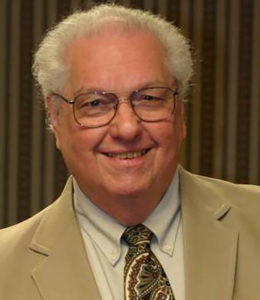By Jerry Price
Retired Pastor, Spring Hill
Focal Passage: 1 Thessalonians 4:3-12
 God chose Abraham and his descendants to be His special, separate people. It was to be a unique relationship which excluded all others — made clear in commandment number two in Exodus 20:3 (see also Deuteronomy 5:7; 6:14; II Kings 17:35).
God chose Abraham and his descendants to be His special, separate people. It was to be a unique relationship which excluded all others — made clear in commandment number two in Exodus 20:3 (see also Deuteronomy 5:7; 6:14; II Kings 17:35).
There were several reasons for that. One is that God knew the negative influences the peoples of other nations who worshiped pagan gods would have on His people. Many of those neighbors’ worship included some variation of fertility practice. Many provided their own temple prostitutes — female, male, or both. Engaging in sexual activity was said to please the fertility god or goddess and insure a bountiful harvest.
Unfortunately, what God knew beforehand came true soon after the death of Joshua and the elders who outlived him. The people turned aside to other gods and adopted their practices (Judges 2:11-13).
Asherah (also known as Ashtoreth) was the Canaanite goddess of fertility. But there were others and the people of Israel soon fell prey to many of them. Without doubt, there was certainly that pagan influence rampant in Thessalonica since Paul came out strongly against it.
Paul states emphatically that God’s will for His people is their sanctification — a word meaning to set aside, to be separate. In this case, he is referring to what some call “progressive sanctification” which is that process of growth that produces godliness in the life of the believer.
One evidence of that growth in godliness would be their abstaining from “sexual immorality.” To what is he referring? The Greek word is porneia (from which we get our English word pornography) which includes any sexual practice that falls outside of the moral parameters that God has established in His Word.
Each person is to “control his own body” rather than falling prey to the “lustful desires” of the Gentiles. That applies especially to adultery. A believer is never to go beyond the limit of God’s will by engaging in a sexual relationship with another man’s wife. The same can be said of a woman involved with the husband of another. Anyone engaging in these ungodly pursuits is guilty of rejecting God.
Next, Paul addresses the matter of brotherly love. In this, he moves from a word of warning to a word of commendation. He says that he does not need to write to them concerning this because they are already doing it.
The Spirit of God dwelling in them was teaching them concerning this love. Their brotherly love was being expressed beyond the city of Thessalonica. It extended to all of the Christians in the “entire region of Macedonia.”
He encourages them to even greater expression of that love. That love may well have been expressed in inviting other believers who were traveling into their homes since accommodations for travelers were few and far between.
Paul had taught them about the Second Coming of the Lord. But apparently some of the people at Thessalonica had abandoned normal activities in an attempt to be ready for it. He tells them that they should concentrate on three things while waiting for the Lord. First, “seek to lead a quiet life.”
The word “quiet” means to hold one’s peace. There were undoubtedly those who were in a high state of agitation and creating some disturbance. Second, attend to their own affairs. Apparently there were those who were meddling in everyone’s business but their own. Third, to do their own job, whatever that might be.
To be excited about the Lord’s return is a very good thing. We could all stand to be more excited about it in our own day. B&R — Price, a retired pastor and denominational worker, is a member of First Baptist Church, Spring Hill.

